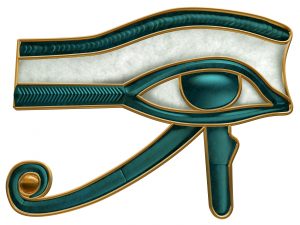The Pineal Gland (also called the pineal body, epiphysis cerebri, epiphysis or the "third eye") is a small endocrine gland. It produces melatonin, a hormone that affects the modulation of wake/sleep patterns and photoperiodic (seasonal) functions. It is located near to the center of the brain between the two hemispheres, tucked in a groove where the two rounded thalamic bodies join. Unlike much of the rest of the brain, the pineal gland is not isolated from the body by the blood-brain barrier system. It is reddish-gray and about the size of a pea (8 mm in humans).
The emphasis on the Pine cone in various architecture from around the world:
Interesting Facts about the Pineal Gland:
* The pineal gland is formed at 49 days within the human embryo: the same time that Tibetans believe it takes for a soul to reincarnate. And the same amount of days that the human embryo becomes either male or female.
* In the ancient Vedic energy system of the chakras, the pineal gland is referred to as the ‘Ajna’ or ‘3rd Eye’ chakra. Modern studies reveal that the gland contains rods and cones – just like those found in the retina of your eyes! This is why when you visualize something strongly enough, you can literally see it “in your mind’s eye.”
*Your pineal gland receives more blood flow per cubic area than any other gland in your body. In other words, compared to all your other organs – including your lungs, your heart and your brain – this tiny little gland gets the highest concentration of energy. Hmm…
* Studies show your pineal gland secretes a substance called Dimethyltriptamine (DMT). The interesting thing about DMT is that it causes experiences which can take you well beyond common states of awareness. This is perhaps why the pineal gland is known in many cultures as the ‘Seat of the Soul’, the ‘Gateway to the Universe’, the ‘Mind’s Eye’ and the ‘Doorway to Higher Realms’.
* Your pineal gland is also important to your physical and mental health, and its well being has been linked to memory, creativity, intuition and critical thinking skills. It is also sensitive to light and plays an important role in your sleep and waking cycles. When light strikes the retina of your eyes, it travels through a tiny nerve system and into the gland. When the lights go off, it sends a signal to the pineal gland to begin secreting melatonin, which activates your nervous system to go into sleep mode.












































